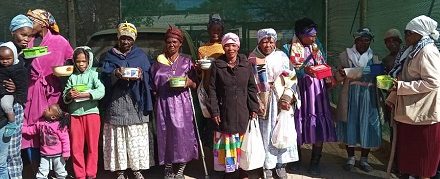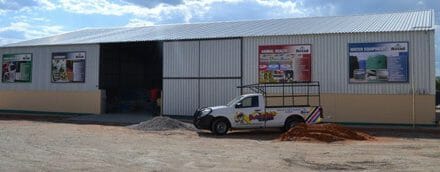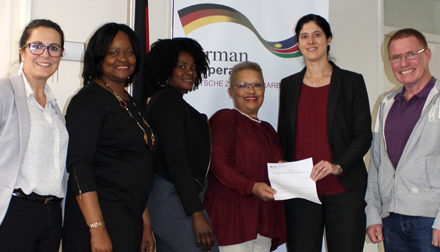
First digital agriculture solution for improving distribution of quality agricultural inputs launched

The Agriculture Ministry recently launched a pilot Electronic Voucher (e-voucher) system for the Build Back Better urban agriculture program to enable market access to agricultural inputs and improve the distribution of quality agricultural inputs to smallholder farmers through the involvement of various agro-dealers.
As an implementing institution for the programme, the Ministry of Agriculture, Water, and Land Reform (MAWLR) benefits from the technical collaboration of the United Nations Development Programme (UNDP) and is grateful to the government of Japan for the capital injection of no less than US$1 million.
This groundbreaking pilot project is being implemented in collaboration with the four municipalities of Windhoek in Khomas Region, Rundu in Kavango East Region, Swakopmund in Erongo Region and Mariental in Hardap Region.
The participating local authorities would allocate land hectares and basic infrastructure for the greenhouses and horticulture activities.
The electronic voucher inputs scheme under this project will issue horticulture and poultry farming input grants through the Environment Investment Fund to about 40 qualifying beneficiaries who are small scale producers including women and youth aged between (19 and 59 years) and persons living with disabilities from the four regions.
The UNDP has been able to pilot this e-voucher system based on grants valued at over N$2.3 million. These grants will be issued as e-vouchers that will be linked to the private sector, particularly agri-suppliers or retailers namely; Kaap Agri, Pupkewitz Megabuild, and Agra.
Beneficiaries operating within the horticulture and poultry value chains will be allowed to access agriculture inputs for their respective business from the respective suppliers.
Agriculture minister Calle Schlettwein said the piloting of the e-voucher solution marks a distinct proposition to provide emergency and subsidized farming input to beneficiary horticulturalists in the four municipalities through real-time, digital solutions as opposed to the manual and paper-based approaches which have traditionally been used by the ministry under the Dryland Crop Production Programme, Horticulture Support and Value Chain Development Scheme, as well as Poultry Value Chain Development Scheme, amongst others.
“Unlike the paper-based manual system, which suffers from challenges related to poor traceability of beneficiaries, lack of real-time data, incomplete beneficiary transaction records and lengthy turnaround time for the services to reach the targeted beneficiaries,” Schlettwein added.












































